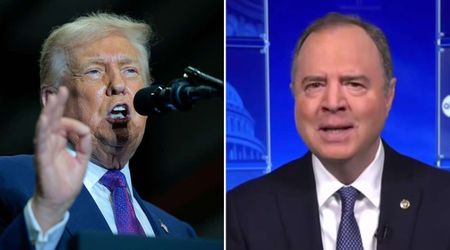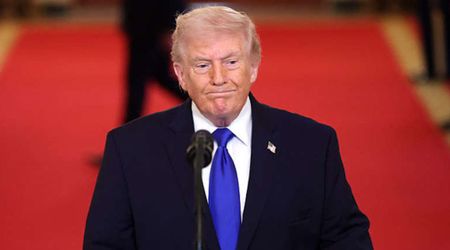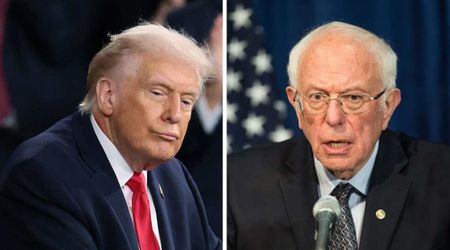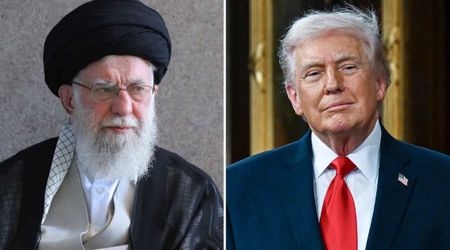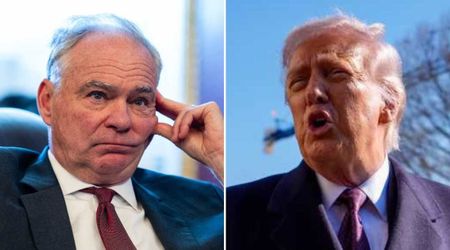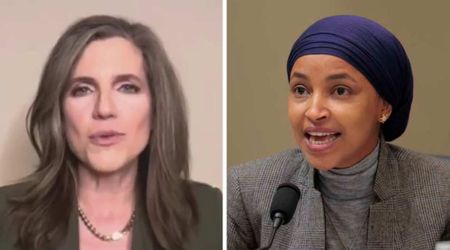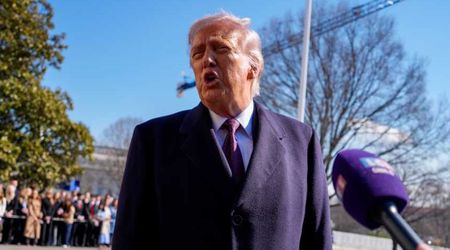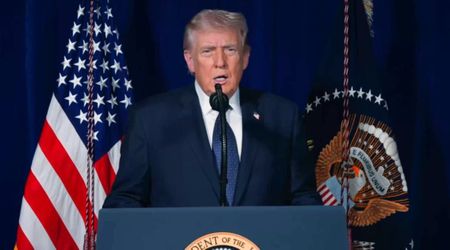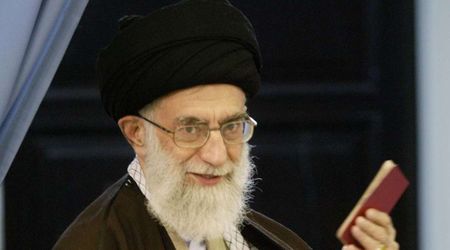Supreme Court slammed as 'totally corrupt' for curbing charges against Jan 6 protesters in potential relief for Trump
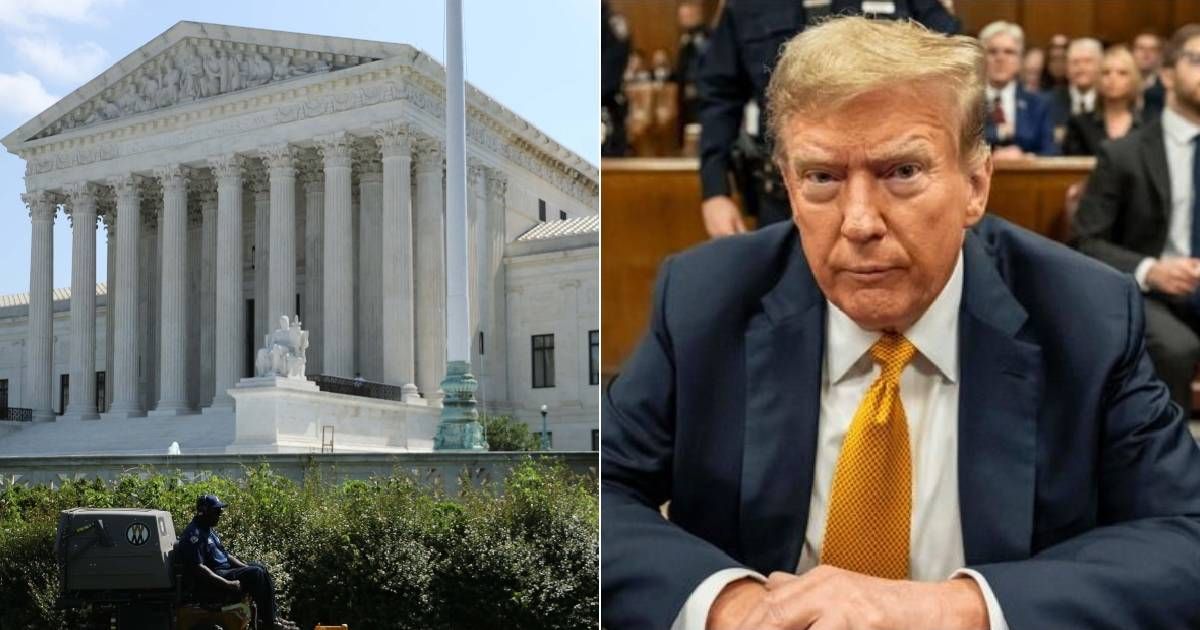
WASHINGTON, DC: The Supreme Court has determined that the Justice Department's prosecution of numerous individuals involved in the US Capitol breach on January 6, 2021, was excessive, indirectly affecting Donald Trump's case.
The charge -- obstructing an official proceeding -- was applied incorrectly in the cases against more than 350 rioters, the court declared on Friday, June 28, in a 6-3 ruling that could result in sentence adjustments and case reevaluations.
Supreme Court's decision could either dismiss Trump's federal case or limit its scope
Justice Ketanji Brown Jackson, appointed by Biden and known for her meticulous examination of the context of laws, concurred with the conservative majority. Justice Amy Coney Barrett, appointed by Trump, authored the dissenting opinion, joined by the two other liberal justices.
This ruling also impacts the extent of Trump's federal January 6 case. Two of the four charges he faces are based on the obstruction statute, PEOPLE reports.
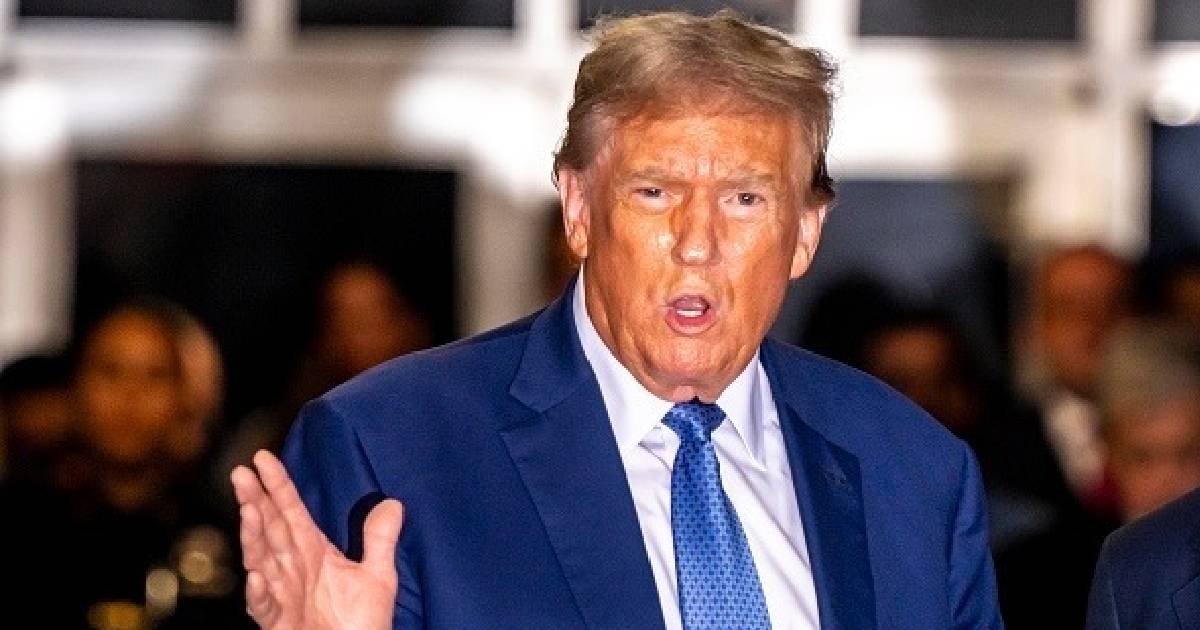
Should these charges be dismissed, Trump would still face two major felony charges: conspiracy to defraud the United States and conspiracy against voters' rights.
Trump awaits another Supreme Court decision that could affect his federal election subversion case.
The court is slated to decide on Monday, July 1, whether presidential immunity shields him from prosecution for his actions as president. This decision could either dismiss Trump's January 6 case or limit its scope.
Court rules that federal statute focuses on evidence tampering rather than physical obstruction
In an attempt to validate the results of the 2020 presidential election, more than 2,000 Trump supporters stormed the Capitol on January 6, 2021, during a congressional session.
Many aimed to disrupt an official proceeding, and indeed, the riot caused Congress to evacuate as the mob violently entered the Capitol. However, the federal statute in question is worded to emphasize tampering with evidence rather than physical obstruction.

The Supreme Court had to interpret the precise language of the statute to decide if it encompasses all forms of obstruction or is confined to evidence tampering.
The debate largely hinged on the interpretation of the term "otherwise" in 18 US Code § 1512(c)(2), originally designed to address white-collar crime.
Hundreds of rioters have been convicted and sentenced for obstruction, with many facing additional charges. Trump, accused of inciting insurrection after the 2020 election loss, faces charges of conspiracy to obstruct an official proceeding and attempting to obstruct an official proceeding.
Supreme Court's recent ruling of sparks widespread criticism
As soon as the news went viral on Facebook, users started criticizing Supreme Court. A user said, "This is totally disgusting! The Supreme Court is not honorable at all. Totally corrupt!"
Another user added, "What a corrupt joke of an announcement. Supreme Court is a joke these days."
The third commentator wrote, "This is corruption of Supreme Court!!"
"Our Supreme Court is beyond corrupt," one said.
A person remarked, "And the corruption of the Supreme court continues."
This article contains remarks made on the Internet by individual people and organizations. MEAWW cannot confirm them independently and does not support claims or opinions being made online.

